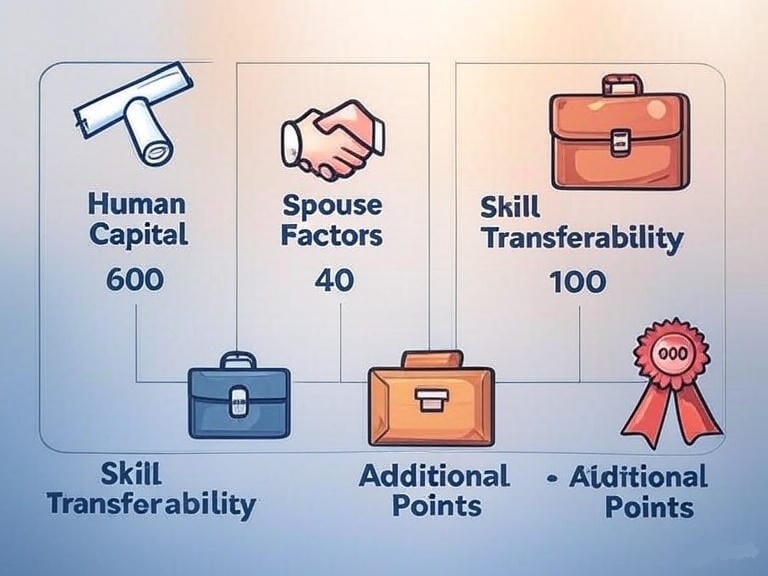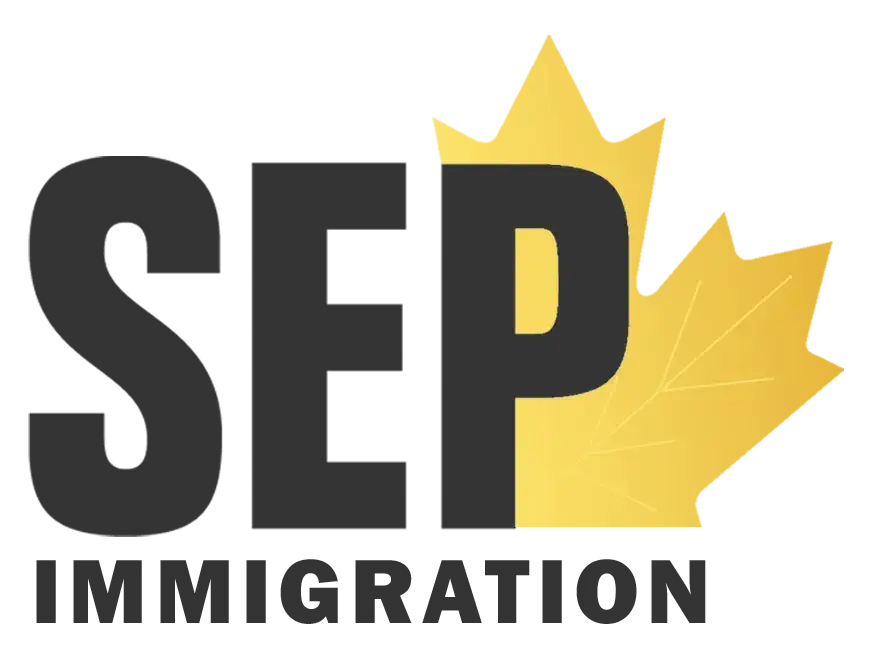Getting into Canada through Express Entry isn’t automatic—even strong candidates can miss out if their CRS score falls short. The margins are tight, and with changes to how points are awarded, the stakes have only grown. A gap of just a few points can mean weeks or months of delay.
This article explains how CRS scores work, what affects them the most, where recent cut-offs stand, and what steps can raise your chances. It also covers what happens once your score is high enough to get noticed.
What Is the Comprehensive Ranking System?
The Comprehensive Ranking System—usually referred to as CRS—is a points-based method used by the Canadian government to rank candidates in the Express Entry pool. Every profile gets a score out of 1,200. The higher the score, the better the chance of receiving an Invitation to Apply (ITA) for permanent residence.
Immigration, Refugees and Citizenship Canada (IRCC) holds rounds of invitations roughly every two weeks. People with the highest CRS scores are invited to submit their permanent residence applications.
Your CRS score depends on several key factors. Some are based on who you are and what you’ve done. Others can change if you take steps like improving your language test results or receiving a provincial nomination.

CRS Points Breakdown: What Factors Matter Most?
CRS scores are based on four categories. Each plays a role in how you’re ranked:
- Core Human Capital (up to 600 points):
This includes age, level of education, language ability in English or French, and work experience from outside Canada. These factors apply whether or not you have a spouse.
- Spouse or Partner Factors (up to 40 points):
If you’re applying with a spouse or common-law partner, their education, language scores, and Canadian work experience will contribute a small portion to your total.
- Skill Transferability (up to 100 points):
This part rewards combinations. For example, someone with strong English scores and a post-secondary degree might earn extra here. So would someone with foreign and Canadian work experience.
- Additional Points (up to 600 points):
These are bonus points that can significantly raise your score. They’re awarded for things like a provincial nomination (600 points), high French test results, a degree from a Canadian institution, or having a sibling who lives in Canada as a citizen or permanent resident.
Minimum CRS Score for Recent Express Entry Draws
As of July 22, 2025, the most recent general draw required a score of 475. That round issued 4,000 invitations.
Some draws target specific groups—like those applying through the Canadian Experience Class (CEC) or French-language speakers. In those cases, the minimum CRS score can differ. For example, French-specific draws have recently had cut-offs around 435–450, depending on demand and the number of invitations IRCC chooses to issue.
Note: As of March 25, 2025, points for job offers were removed from the scoring system. This change may cause the overall cut-offs in some categories to rise slightly, since fewer bonus points are now available.

How to Improve Your CRS Score Before Applying
Raising your CRS score isn’t always fast, but there are a few common strategies that can make a meaningful difference.
Take another language test
High scores on English or French tests can dramatically change your position in the pool. Hitting a Canadian Language Benchmark (CLB) of 9 or above can unlock transferability points, giving you a lift in more than one category.
Get your education assessed
If you studied outside Canada, an Educational Credential Assessment (ECA) is necessary to claim education points. Without it, the system won’t count your degree—even if it’s a master’s or higher.
Gain more Canadian work experience
If you’re already in Canada on a work permit, another year in a qualifying job can push your score up. IRCC awards points for experience gained in this country, especially in full-time, high-skilled roles.
Earn a provincial nomination
This is the fastest way to gain 600 points. Each province has its own eligibility streams, and some focus on specific occupations, language skills, or past Canadian education. You’ll need to monitor the provinces’ websites for updates and openings.
Study or work in Canada
While it’s not a short-term option, finishing a credential here or working in a skilled position may improve your chances later.
Improve your French
If you already speak French, or are willing to study, French language test results can bring in extra points—sometimes even when your English is weaker.
How SEP Immigration Can Help with Your Express Entry CRS Calculator
The CRS system is rigid, but the way you interact with it doesn’t have to be. SEP Immigration helps applicants make sense of how their profile fits into Canada’s immigration system.
This includes reviewing your educational background and ensuring it’s properly assessed, suggesting how and when to retake a language test, flagging potential pathways to provincial nominations, and helping you figure out whether your spouse’s experience and credentials could add a few extra points.
What Happens After You Reach the CRS Score?
If your score is above the minimum for a particular draw, you may be invited to apply. Invitations usually go out within 24–48 hours of the draw date.
Once invited, you’ll have 60 days to submit a complete application for permanent residence. During that time, you’ll need to upload documents that support the details in your Express Entry profile—proof of education, work history, language test results, police certificates, and more.
If your file is complete, IRCC aims to process it in about six months. However, timelines can shift depending on volume, complexity, or changes in policy.
Is 470 a good CRS score for CEC?
It’s close. Past CEC-specific draws sometimes accepted scores around 470, but recent changes may push the cut-off higher.
What is the CRS score in Canada?
It’s a ranking number between 0 and 1,200 used to evaluate Express Entry applicants in Canada’s immigration system.
What if my CRS score is too low?
You can try to increase it through test improvements, ECA, French skills, or applying to provincial nomination streams.
Will the CEC score go down in 2025?
It’s hard to predict. Scores depend on draw size, demand, and policy changes throughout the year.
How to measure CRS score?
Use IRCC’s official calculator. Enter personal, education, work, and language details to get an estimated score
What increases your CRS score?
Higher language scores, Canadian work experience, French proficiency, an ECA, or a provincial nomination can all raise your CRS.



